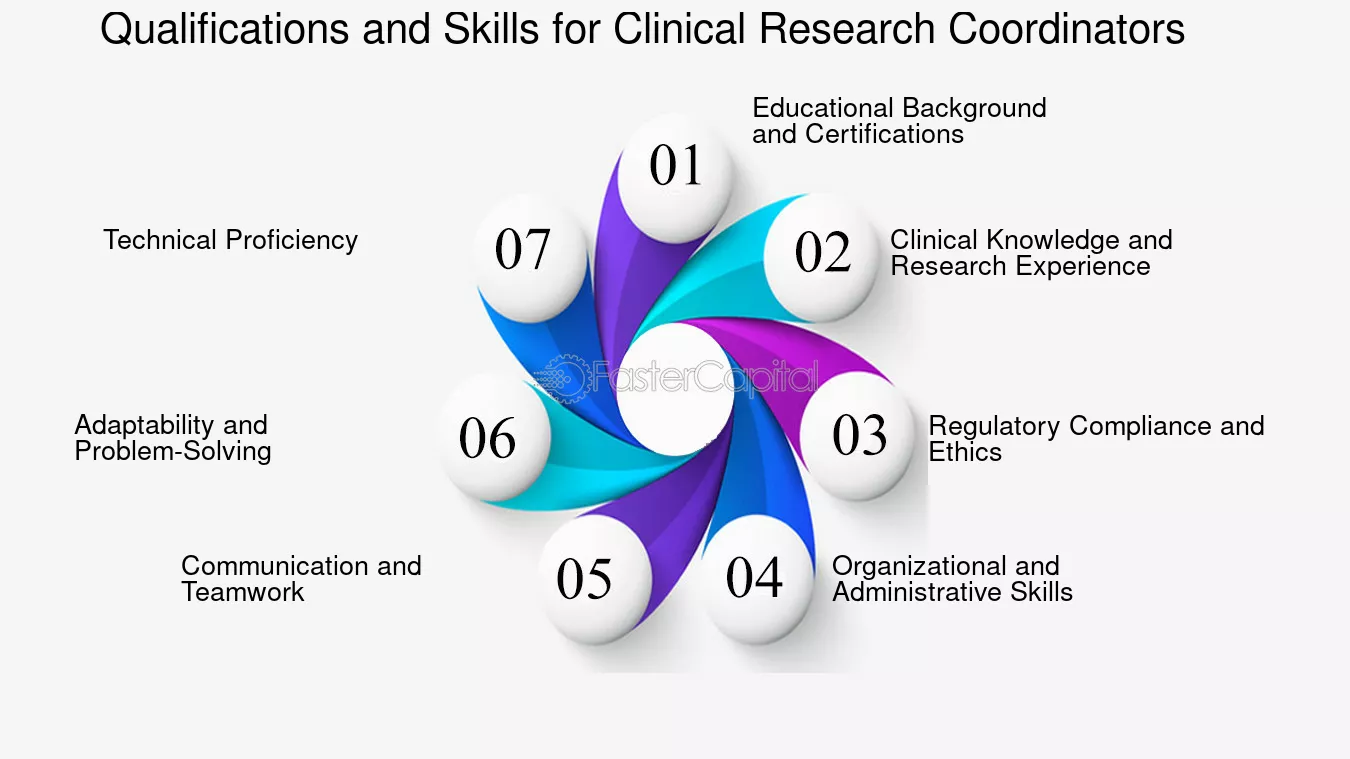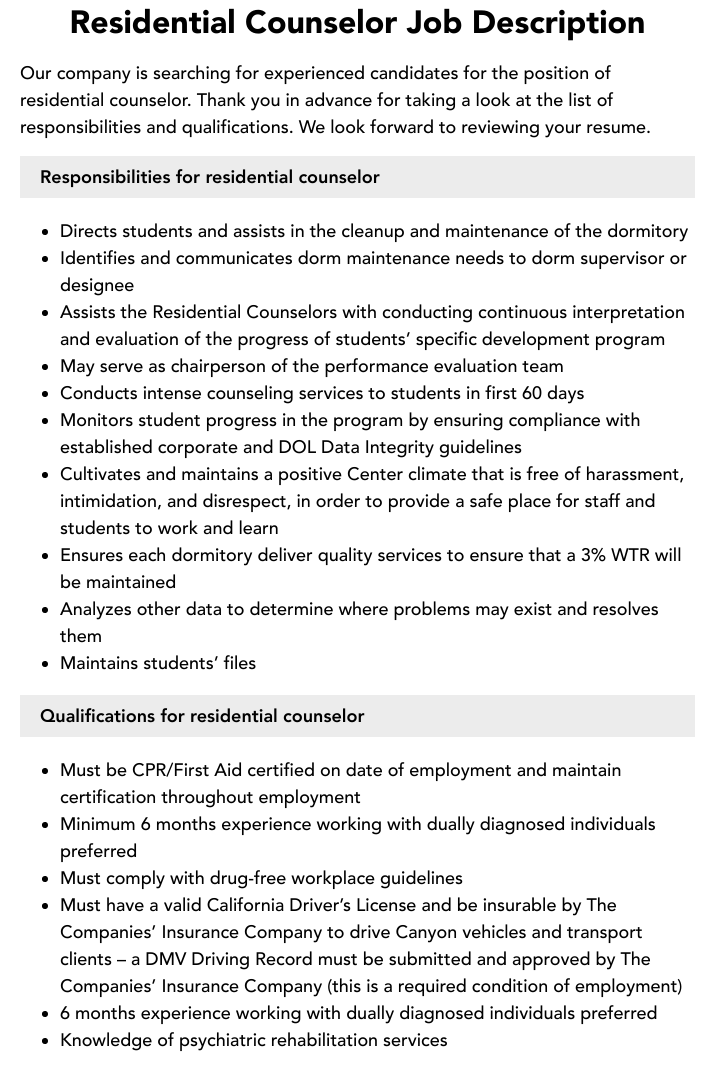
A clinical research coordinator job description outlines the duties and responsibilities of a professional who assists in the planning, implementation, and coordination of clinical research studies. They work under the supervision of a principal investigator and are responsible for ensuring that studies are conducted according to Good Clinical Practice (GCP) guidelines and regulatory requirements.
Clinical research coordinators play a vital role in the development of new drugs, devices, and treatments. They help to ensure that studies are conducted safely and efficiently, and that data is collected and managed accurately. They also work with patients and families to explain the study process and answer any questions they may have.
To be successful in this role, clinical research coordinators must have a strong understanding of GCP guidelines and regulatory requirements. They must also be able to work independently and as part of a team, and have excellent communication and interpersonal skills.
1. Coordination
In the context of a clinical research coordinator job description, coordination encompasses the management and oversight of clinical research studies. This involves a range of responsibilities, including:
- Planning and developing study protocols in collaboration with the principal investigator and research team
- Recruiting and enrolling patients into studies
- Coordinating study visits and data collection
- Monitoring patient safety and reporting any adverse events
- Ensuring compliance with GCP guidelines and regulatory requirements
- Preparing and submitting study reports
Effective coordination is essential for the success of clinical research studies. Clinical research coordinators play a vital role in ensuring that studies are conducted safely and efficiently, and that data is collected and managed accurately. They also serve as a bridge between patients and researchers, helping to build trust and understanding.
2. Compliance
In the context of a clinical research coordinator job description, compliance encompasses ensuring adherence to Good Clinical Practice (GCP) guidelines and regulatory requirements. This is of paramount importance for several reasons:
- Protecting patient safety: GCP guidelines and regulatory requirements are designed to protect the safety and well-being of patients participating in clinical research studies.
- Ensuring data integrity: Adherence to GCP guidelines and regulatory requirements helps to ensure that data collected in clinical research studies is accurate and reliable.
- Maintaining public trust: The public must have confidence that clinical research studies are conducted ethically and in accordance with GCP guidelines and regulatory requirements. This trust is essential for the continued progress of medical research.
Clinical research coordinators play a vital role in ensuring compliance with GCP guidelines and regulatory requirements. They are responsible for developing and implementing study protocols, recruiting and enrolling patients, collecting and managing data, and reporting any adverse events. They also serve as a bridge between patients and researchers, helping to build trust and understanding.
The importance of compliance in clinical research cannot be overstated. By adhering to GCP guidelines and regulatory requirements, clinical research coordinators help to protect patient safety, ensure data integrity, and maintain public trust. This is essential for the continued progress of medical research and the development of new drugs, devices, and treatments.
3. Communication
In the context of a clinical research coordinator job description, communication encompasses interacting effectively with patients, families, and research team members. This is essential for several reasons:
- Building trust and rapport: Clinical research coordinators need to build trust and rapport with patients and families in order to obtain informed consent and ensure their continued participation in the study. This involves being able to communicate clearly and concisely, and to answer any questions or concerns that they may have.
- Providing support and education: Clinical research coordinators need to provide support and education to patients and families throughout the study. This includes explaining the study procedures, answering any questions that they may have, and providing emotional support. Clinical research coordinators also need to be able to communicate effectively with other members of the research team, including the principal investigator, other research coordinators, and data managers. This involves being able to share information clearly and concisely, and to work collaboratively to achieve the goals of the study.
- Resolving conflict and addressing complaints: Clinical research coordinators may also need to resolve conflict and address complaints from patients, families, or other members of the research team. This involves being able to listen to concerns, identify the root of the problem, and develop a solution that is acceptable to all parties involved.
Effective communication is essential for the success of clinical research studies. Clinical research coordinators play a vital role in ensuring that patients and families are informed and engaged, and that the research team is working together effectively. By developing strong communication skills, clinical research coordinators can help to build trust, provide support, resolve conflict, and achieve the goals of the study.
4. Data Management
In the context of a clinical research coordinator job description, data management encompasses collecting, processing, and safeguarding study data. This is a critical component of clinical research, as it ensures that data is accurate, reliable, and available for analysis. Clinical research coordinators play a vital role in data management, and they must have a strong understanding of data management principles and practices.
Data management in clinical research begins with the collection of data from patients. This data can include medical history, physical examination findings, laboratory results, and patient-reported outcomes. Clinical research coordinators are responsible for ensuring that data is collected accurately and completely, and that it is entered into the study database in a timely manner.
Once data has been collected, it must be processed and cleaned. This involves checking for errors, inconsistencies, and missing data. Clinical research coordinators must also ensure that data is coded and formatted correctly so that it can be analyzed.
Finally, clinical research coordinators are responsible for safeguarding study data. This includes protecting data from unauthorized access, use, or disclosure. Clinical research coordinators must also ensure that data is backed up regularly and stored securely.
Effective data management is essential for the success of clinical research studies. Clinical research coordinators play a vital role in ensuring that data is accurate, reliable, and available for analysis. By developing strong data management skills, clinical research coordinators can help to ensure the integrity of clinical research studies and contribute to the development of new drugs, devices, and treatments.
FAQs on Clinical Research Coordinator Job Description
This section addresses frequently asked questions related to clinical research coordinator job descriptions, providing concise and informative answers.
Question 1: What are the key responsibilities of a clinical research coordinator?
Clinical research coordinators assist in planning, implementing, and coordinating clinical research studies. They ensure adherence to Good Clinical Practice (GCP) guidelines and regulatory requirements, manage study budgets, and work with patients and families to explain the study process.
Question 2: What qualifications are typically required for this role?
A bachelor’s degree in a relevant field, such as nursing, biology, or public health, is usually required. Experience in clinical research or a related field is also beneficial. Strong communication, interpersonal, and organizational skills are essential.
Question 3: What are the career prospects for clinical research coordinators?
With experience and additional education, clinical research coordinators can advance to roles such as clinical research manager, clinical operations manager, or project manager.
Question 4: What is the work environment like for clinical research coordinators?
Clinical research coordinators typically work in hospitals, universities, or research institutions. They may spend time in clinical settings interacting with patients and healthcare providers, as well as in offices or laboratories.
Question 5: What are the challenges faced by clinical research coordinators?
Coordinators may face challenges in recruiting and retaining study participants, adhering to complex regulatory requirements, and managing large volumes of data. They must also be able to work effectively under pressure and meet deadlines.
Question 6: What is the job outlook for clinical research coordinators?
The job outlook for clinical research coordinators is expected to be favorable due to the increasing demand for clinical trials and the growing emphasis on patient-centered care.
In summary, clinical research coordinators play a vital role in the clinical research process. They ensure that studies are conducted ethically and efficiently, contributing to the development of new treatments and therapies.
Transition to the next article section: Key Skills and Qualities of a Clinical Research Coordinator
Tips for Writing a Clinical Research Coordinator Job Description
Crafting a well-written job description is crucial for attracting and hiring qualified candidates for your clinical research coordinator role. Here are five tips to help you create an effective job description:
Tip 1: Clearly define the role and responsibilities.
The job description should clearly outline the key responsibilities of the clinical research coordinator, including study coordination, patient recruitment, data management, and regulatory compliance. Use specific examples to illustrate the duties and tasks involved in each responsibility.
Tip 2: State the required qualifications and experience.
Specify the minimum qualifications required for the role, such as a bachelor’s degree in a relevant field and experience in clinical research or healthcare. Include any desired certifications or licenses that would be beneficial for the candidate to possess.
Tip 3: Highlight the key skills and qualities.
Emphasize the essential skills and qualities that you are seeking in a clinical research coordinator. These may include strong communication and interpersonal skills, attention to detail, and the ability to work independently and as part of a team.
Tip 4: Describe the work environment and culture.
Provide a brief overview of the work environment and culture of your organization. This could include information about the research team, the types of studies conducted, and the opportunities for professional development.
Tip 5: Proofread carefully before posting.
Once you have completed the job description, proofread it carefully for any errors in grammar, spelling, or punctuation. A well-written and polished job description will make a positive impression on potential candidates.
Summary of key takeaways:
- Clearly define the role and responsibilities.
- State the required qualifications and experience.
- Highlight the key skills and qualities.
- Describe the work environment and culture.
- Proofread carefully before posting.
Transition to the article’s conclusion:
By following these tips, you can create a job description that will attract and hire the most qualified candidates for your clinical research coordinator role.

